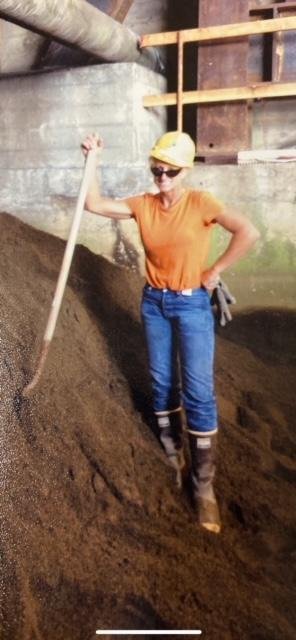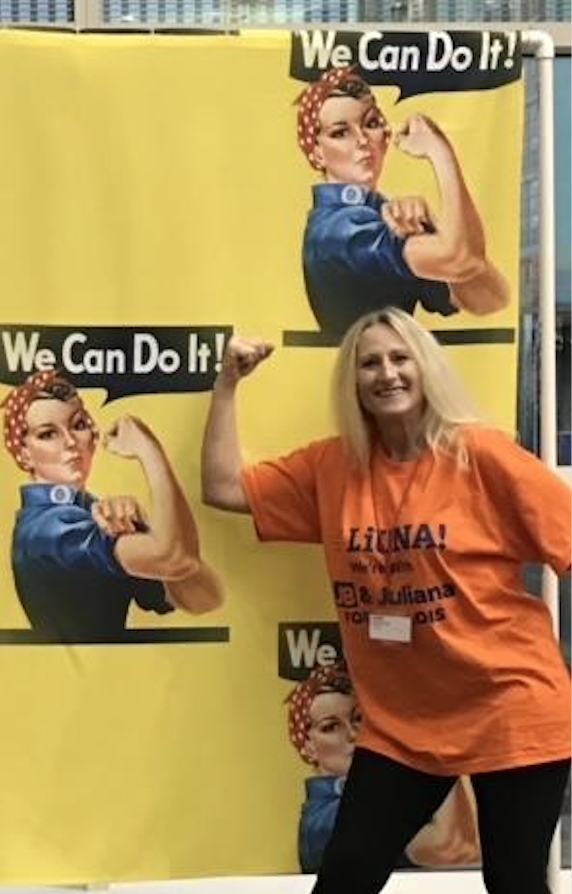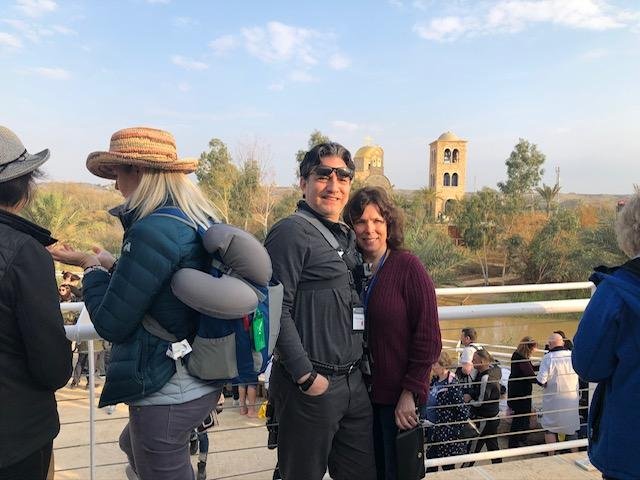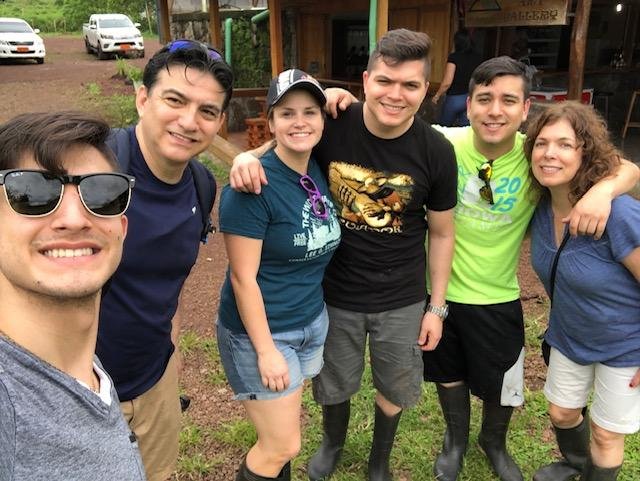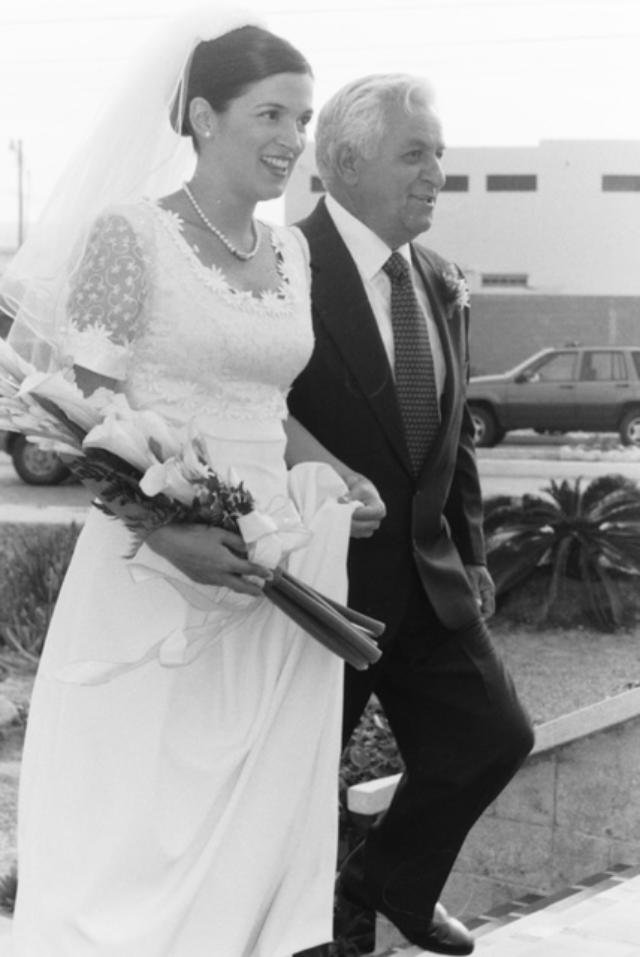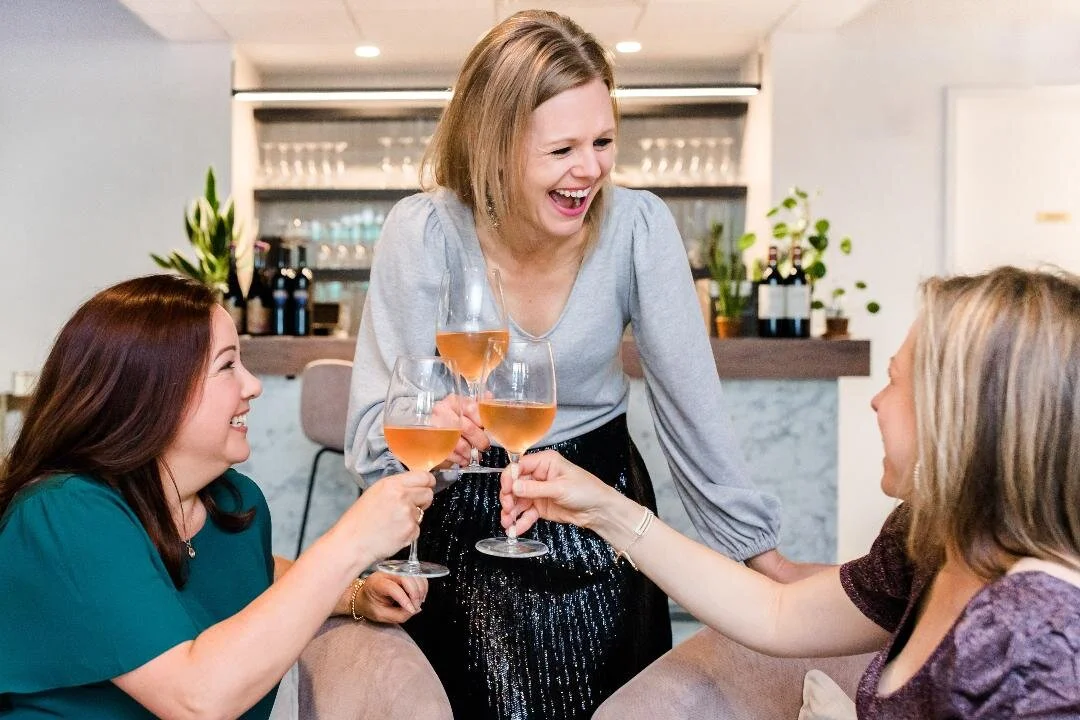Shelly Kleppe
Laborer
Apprentice Trainer
The construction industry has over 500,000,000 open positions today. The industry provides well-paying, exciting opportunities that lead to a bright future. Yet women tend to shy away from the industry due to outdated stereotypes and norms. One woman who successfully navigated a 40-year career starting as a craft laborer and ultimately an apprentice mentor is Shelly Kleppe.
Shelly recently retired as an ANSI-certified instructor at the Northwest Laborers Employer Training Trust in Seattle, Washington. She passed on her industry knowledge to the next generation by teaching apprentices her trade.
Shelly spent most of her career placing the concrete as a nozzle woman, vibrator hand, and a concrete foreman on many landmark projects in the Seattle region. She attributes her success and longevity as one of the only women in the field to a strong work ethic, positive attitude, a great sense of humor, and her Bad Ass ability to perform physically challenging labor. While blazing trails for women and breaking down stereotypes in the construction industry, she raised three daughters who followed in her footsteps and started their careers in the construction industry.
In 2022, Shelly retired with no regrets, planning to spend time with her grandchildren, traveling with her husband, mountain biking, and gardening.
Here is Shelly's story.
TK: How did you land a career in construction 41 years ago?
SK: I figured out early in high school that going to college was not for me. Thanks to my mother's encouragement, I got my high school diploma and looked for a new start. My father was a Superintendent in the construction industry my entire life. He agreed to help me get an interview with the union hall for a labor position. The rest was up to me. To my surprise, I landed the job and was assigned to work on a West Seattle Bridge. Back in the 1980s, the West Seattle Bridge job was federally funded, which meant they were required to recruit and hire women actively. Between my Dad and affirmative action, the door to construction opened for me.
I was hired to do physical labor, working with my hands, laying pipe, placing concrete, and doing carpentry. Everything was on the job training, and I had to figure most of it out myself. There was no such thing as an apprentice program. For the first time in my life, I felt an odd sensation welling up inside of me – success. I knew I was good, and I was proud of my work. School had always been such a beating, shaking my confidence. But working with my hands, pushing my physical boundaries, and getting the job done was challenging and liberating.
TK: What were some of the unique challenges you faced along the way?
SK: Back in 1981, women didn't pour concrete. At 18 years old with an average build, I had to build up my physical strength to perform the job. The job required me to lift heavy things all day long. Over time my body got stronger and I could keep up. I had to choose to push through and not give up.
The reality is that entering the construction industry meant entering a man's, rough and tumble world. The industry is rough, the language is foul, and it's not for everyone. My Dad had an excellent reputation and was a well-respected superintendent. In some way, the respect crews had for him passed on to me.
Yes, there were comments and weird situations, but I learned not to take everything to heart initially.
Back in 1984, a superintendent came up to me and slapped me on the ass. I was stunned, my jaw fell to the floor. I didn't do anything about it because I was in shock. I had the courage to tell him that it was not OK and it never happened again. Not every situation needs to be taken to the next level. I soon realized that I had to teach people how to treat me and stick up for myself. I learned how to be my self-advocate and carry myself in a way that expected and deserved respect.
TK: What ways women entering the industry can set themselves up for success?
SK: As I became more knowledgeable, confident, and skilled in my field, in some cases, I became more intimidating and felt like I had a target on my back. The 'Babe to Bitch’ phenomenon you describe in "The B Words" is real. To make it in the man's world, I had to be the best. Yet as time passed and I became more confident in my knowledge and skills, I was pushed out for being the best. Egos got in the way. No one can survive 40 years in a career by being timid. There will be dark times, and you will face people and situations that let you down. Resilience is the key.
TK: What are some barriers women still face today in construction?
SK: Childcare is a huge issue that holds women back. I chose to marry and have a family. Yet there is no such thing as a fixed schedule in construction. We go where the work takes us. We start early and work staggered hours. These conditions are not conducive to creating balance in the home. When my kids were little, my husband was working in Alaska. There were times when I was acting as a single mom, working a crazy schedule up to 60 miles away from home. These issues are still a problem today, and it is not out in the open. Until the mindset shifts where most childcare responsibilities are left up to the mother, the barrier to our industry will stay in place.
TK: What personal challenges did you face along the way?
SK: The industry is to work hard, play hard, and when I first started, we would work all day and head to the bar afterward and drink hard. The pattern led to an alcohol problem in my early 20s. I quit drinking in 1984 but my journey didn't stop there. Unfortunately, I picked up a gambling addiction in the early 1990’s. As long as I was working, the money was there to sustain my addiction. A two-month layoff meant the checks stopped coming. The layoff was my blessing in disguise and changed my life for the better. I realized I had a gambling addiction, and I signed up for outpatient counseling. I've been in recovery since 2012.
TK: What advice would you give a young woman wanting to embark on a career in the trades?
SK: I have three daughters who joined the industry, and here is the advice I gave them. First, don't take everything to heart. Your behavior and how you carry yourself determine how you will be treated. Second, don't dip your pen in the company ink. If your goal is to find a relationship in the field, men will pick up on that. They will respond accordingly. Third, If you want to be a good brother, be a good sister.
Unfortunately, there are a few bad apples that spoil it for everyone. In an industry where women are still so few and far between, I encourage women to be role models and not play into stereotypes.
TK: How did forming relationships help you during your career?
SK: The crews knew I was good at what I did, and when someone questioned my abilities, their approval allowed me to work. I was called out to do a rivet buster job. They were behind and couldn't find anyone to do the job. So they called me. The foreman was in the basement of an old building standing in an office surrounded by windows. I walked up to him, introduced myself, and told him I was there to chip concrete. He was holding the tongue of a compressor in his hand. He took one look at me and flung it across the room, shattering the window. At that moment, one of the crew member's I worked with before came up and vouched for me. So I was able to go to work. Luckily I worked with one of the guys before, and he vouched for me, saying, "Shelly is our girl." We completed the job, and the foreman invited me to lunch. He told me that I reminded him never to judge a book by its cover.
TK: You have spent the last part of your career working with apprenticeships and training. What have you learned from the experience?
SK: I applied at the training facility in 2017, and to my surprise I got the job. I experienced Imposter Syndrome for quite a while. Soon I had the opportunity to make a difference in the personal lives of many who didn't think they had much of a future.
My most rewarding project was working with the Pre Construction Training (PCT) program for the Washington Corrections Center for Women (WCCW). The women are close to being released and come to the program unsure how they will make it back in the outside world. Upon completion of the program, they have the opportunity to enter the union directly upon release and have a good-paying job with benefits and a skill set. We have an 80% passing rate. It is incredible to see the transformation when a woman experiences learning a trade and has the opportunity to build an independent future for herself.
TK: What is your favorite quote?
“If you want to have a good brother, then be a good sister. ”
TK: Who is your role model, and what did you learn from them?
SK: My Dad, Jack Burell, was my role model. Two years after he got me the union interview, he suffered a major stroke and passed away. My dream was to make him proud of the person I became. I think I accomplished that.



